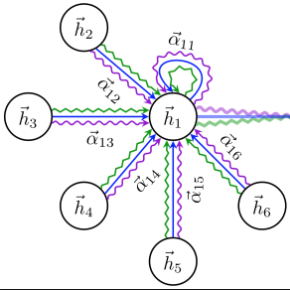Robotic manipulation tasks, such as object rearrangement, play a crucial role in enabling robots to interact with complex and arbitrary environments. Existing work focuses primarily on single-level rearrangement planning and, even if multiple levels exist, dependency relations among substructures are geometrically simpler, like tower stacking. We propose Structural Concept Learning (SCL), a deep learning approach that leverages graph attention networks to perform multi-level object rearrangement planning for scenes with structural dependency hierarchies. It is trained on a self-generated simulation data set with intuitive structures, works for unseen scenes with an arbitrary number of objects and higher complexity of structures, infers independent substructures to allow for task parallelization over multiple manipulators, and generalizes to the real world. We compare our method with a range of classical and model-based baselines to show that our method leverages its scene understanding to achieve better performance, flexibility, and efficiency. The dataset, supplementary details, videos, and code implementation are available at: https://manavkulshrestha.github.io/scl
翻译:暂无翻译



